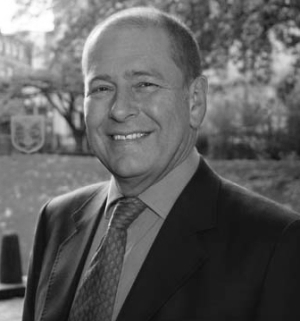Important matters are a hallmark of the PAGB agenda. Among my memories I remembered “volunteering” for a TV appearance to defend brands against generics. I argued that to discredit belief in a brand was tantamount to a consumer disservice as that belief is fundamental to efficacy (as is witnessed by the astonishing results that can be achieved by the placebo in clinical trials). In my very first job, at Procter and Gamble, in product placement tests, Fairy Snow would beat Persil, hands down, in blind tests (unmarked packs) the same test with branded products resulted in exactly the opposite. Perception is all.
The other big event that PAGB needed to come to terms with in the 1980s was the so-called Black List when a host of semi-ethicals were banned from prescription. Semi-ethicals were medicines that were prescribed by doctors, were available through pharmacies on an OTC basis, but were not eligible for advertising. At Sterling, there was a whole division (Winthrop Pharmaceuticals) which focused entirely on promoting semi-ethicals through pharmacy although the bedrock of the products was the endorsement by doctors. Suddenly, the marketing rationale needed to change with the opportunity to promote these products through direct advertising. The commercial implications for many companies were major.
Of course, dealing with the Medicines Control Agency (now the Medicines and Healthcare Product Regulatory Agency (MHRA)) has always been a key responsibility for PAGB and the relationship has always been strong. Indeed, in my experience, the MHRA has a respectful attitude to OTCs whereas (again in my experience) in big pharma companies with an OTC division, OTCs tend to be regarded as an “add on” and of less importance than Rx (prescription) and the challenge of new compounds for therapies. Maybe a bit of intellectual snobbery here but do not tell me a specialist brain consultant does not feel miserable with the common cold!
2005 – my term as President
As PAGB President in 2005 and then the MD of The Mentholatum Company (the Deep Heat company!), it was interesting to learn that the company was one of the founding members of PAGB and, despite its relatively small size, had equal representation at PAGB Board Meetings. This again is a significant feature of PAGB, the fact that size does not matter, that all around the table have an equal say. Of course, the larger companies may have more depth of knowledge and insight, but this never seemed to me to initiate any form of arrogance or disdain. Quite remarkable really and a real indicator of genuine team spirit. Industry self regulation is regarded by the cynic as introverted self-protectionism, but the fact that PAGB has survived 100 years is a tribute to the integrity of its operation and its adherence to ethical practice.
The year 2005 was one I remember as I addressed about 400 attendees at PAGB’s 8th Annual Conference and lambasted the regulators for causing the industry to be drowning in a sea of disproportionate regulations. It was at the time when braille was being introduced on medicines packs. I understood that even the Braille Society was not really in favour of the move and, at the time, only 19,000 people in the UK could read braille. I probably went over the top in calling for a relaxed approach to regulation but, without the efforts of PAGB, I feel sure we would all be drowned in rules by now. In general terms, PAGB has always insisted on an evidence based approach. Speculation is never its mantra and, unfortunately, journalists have much to answer for in putting sensationalism before fact.
Regulatory milestones
All of us can list many of the key projects that have occupied the PAGB agenda. A very significant one, in my time, was the proposed abolition of Resale Price Maintenance on medicines. It was a hugely complicated matter involving both economic modelling and intricate legal considerations. We all know the outcome though many of the fears at the time (the collapse of pharmacy outlets, for example) were not realised. It certainly was a topic of central stage at PAGB Board Strategy meetings. These are fond memories and not just business related. Pennyhill Park, in addition to a 9 hole golf course, had an excellent wine list and I joined two others from two PAGB companies, one evening prior to the meeting, and we indulged in a bottle of Australia’s most expensive and prestigious wine, Penfolds Grange. (Well actually, it was two bottles). Not, I’m afraid, an allowable company expense.
Mastering the Mutual Recognition Procedure was a process as complex and frustrating as Brexit. The notion was that once a Marketing Authorisation had been granted in one European (EEC) country, it should be recognised for approval in others. Things did not work that way as countries simply cited safety issues as an allowable block, typically to protect local licence holders from competition. Without the help of PAGB and the MHRA, we would have failed completely. As it was, a carefully constructed business plan for the launch of a topical analgesic in Germany was, necessarily, abandoned and a whole new strategy was developed for France where no launch had originally been intended.
Another hundred years?
In being asked to write this, I was also asked to provide a view on the future of PAGB. At this I hesitate other than to say there is every reason to feel confident that another 100 years is in prospect.
The challenges will keep on coming … POM to P / e-commerce / A.I. and robots / the exponential growth of scientific data / the once hero of packaging, plastic, now the villain. I am convinced some major breakthroughs will emerge. Even back in Sterling Health days, I believed there would be a self care medical device to provide a health diagnosis. Simply provide a blood prick and urine sample to such a device to learn if you were healthy or needed an OTC medicine or should consult a healthcare professional with the result of the test. (Yes, there could be a ‘panic’ outcome, but this is surely offset by early diagnostic knowledge. And think of the benefit to the NHS and its overworked A&E).
Always seeking to improve (“there’s always a better way”), is one of the hardest dictums to realise but is the kind of challenge to which PAGB relates ongoing. And to end on a trivial note, any organisation that has kept the catchy title of the Proprietary Association of Great Britain for nearly 100 years (it was the even catchier Association of Manufacturers of British Proprietaries until 1926) must be excused a self-congratulatory pat on the back!
By Bron Gorny, former Chief Executive of Mentholatum, current Hon Treasurer, PAGB



